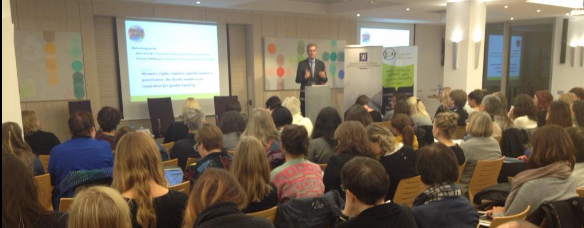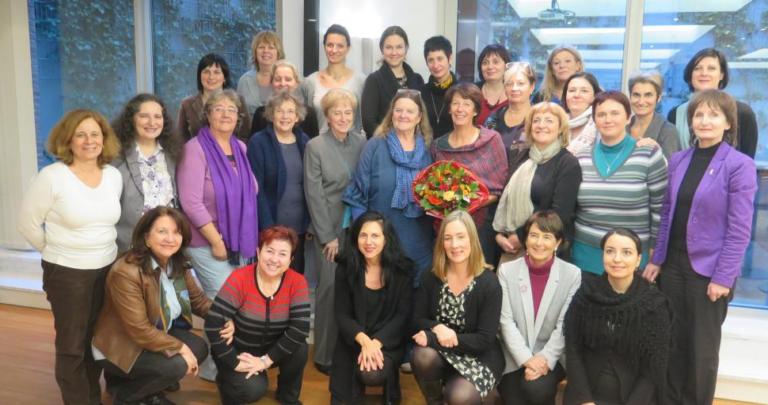[Published in thejournal.ie, on 27 MArch 2014] Today the myth that buyers of sex are isolated, disadvantaged and lonely men will be dispelled with the publication of European Commission supported research at the ‘Stop Traffick!’ Conference in Dublin.
The conference is the result of 18 months of academic work with researchers in Ireland, Bulgaria, Cyprus, Finland and Lithuania going online into chat rooms, posting on message boards and entering the murky world of prostitution to examine the habits of buyers.
A total of 763 sex buyers engaged with the study, of which 58 were in Ireland.
The results are conclusive and have already been acknowledged by European Home Affairs Commissioner Cecelia Malmstrom as being an important input into the ongoing debate on curbing demand for sex trafficking.
Many buyers are well-off and well-educated
There are a lot of similarities between the findings in each of the five countries. We all found that buyers are in the main well-off with over two-thirds earning more than €20,000 a year, most were well-educated and, in the case of Ireland, 52 per cent are in a relationship while 45 per cent are over the age of 45.
The study confirmed what we have always suspected that buyers are in the main men, while the sellers of sex are in the vast majority of cases women.
As well as profiling buyers the Immigrant Council of Ireland examined if the men ever came across women they believed were being controlled by pimps, were frightened or were trafficked. The results are startling, with over one in four admitting they had come across women and girls they believed were in such situations. A significantly lesser number considered to report this to the authorities, dispelling the myth that buyers are helpful is tackling human trafficking.
It is particularly disturbing that no buyer has been prosecuted under Ireland’s anti human trafficking legislation designed to reduce demand for victims of trafficking, which clearly does not work.
The main aim of the Stop Traffick! project was to examine ways in which demand for sex trafficking could be reduced and this was an area where our researchers also quizzed buyers.
Being ‘named and shamed’ is the biggest fear
For 54 per cent of men the biggest fear is being named and shamed in a local newspaper, while fear of prosecution and of contracting a sexually transmitted disease were also highly rated.
This last result is important as it comes when Ireland, Northern Ireland, France, the European Parliament as well regions further away like Canada and New South Wales in Australia are examining laws targeting sex buyers.
We have now heard from the buyers themselves that they would fear such laws, the clearest signal yet that they will work.
The Immigrant Council of Ireland will be forwarding this study to the Government and to the Oireachtas Justice Committee and asking that like the European Commission they will commit to using its findings in forming future laws.
It is now almost eight months since the Justice Committee unanimously backed sex buyer laws after studying 800 written submissions and hearing six months of hearings.
The reality of the European sex trade
While the recommendations from the Committee did represent a milestone in the debate on prostitution laws – it is worth noting that across Ireland today pimps and traffickers are going about their evil trade as freely as ever.
About 800-1,000 women are for sale online in this country today.
Young teenage girls will have sex with 12 or 15 men in Irish brothels today.
That is the reality of prostitution.
It is a reality the €25 billion European sex trade does not want you to know.
Here our trade unions and employers have rejected the notion that prostitution is a job, it is exploitation not employment.
Those behind it are criminals, something Senior Gardaí testified about over 12 months ago and which the vested interests of the sex ‘trade’ have never responded to.
As one of the 68 organisations which form the Turn Off the Red Light Campaign we are again calling on the Taoiseach, Enda Kenny, TD and his Ministers to end the delay in responding to a crime which is now bigger than drug dealing in the European Union.
You can add your voice to the campaign at www.turnofftheredlight.ie/action
Nusha Yonkova is the anti-trafficking coordinator at the Immigrant Council of Ireland. She holds a Masters of Arts Degree in Intercultural Studies from Dublin City University. Since 2007, Nusha coordinates the diverse anti-trafficking work at the Immigrant Council and has significant expertise in producing and coordinating research and policy documents in this area.



